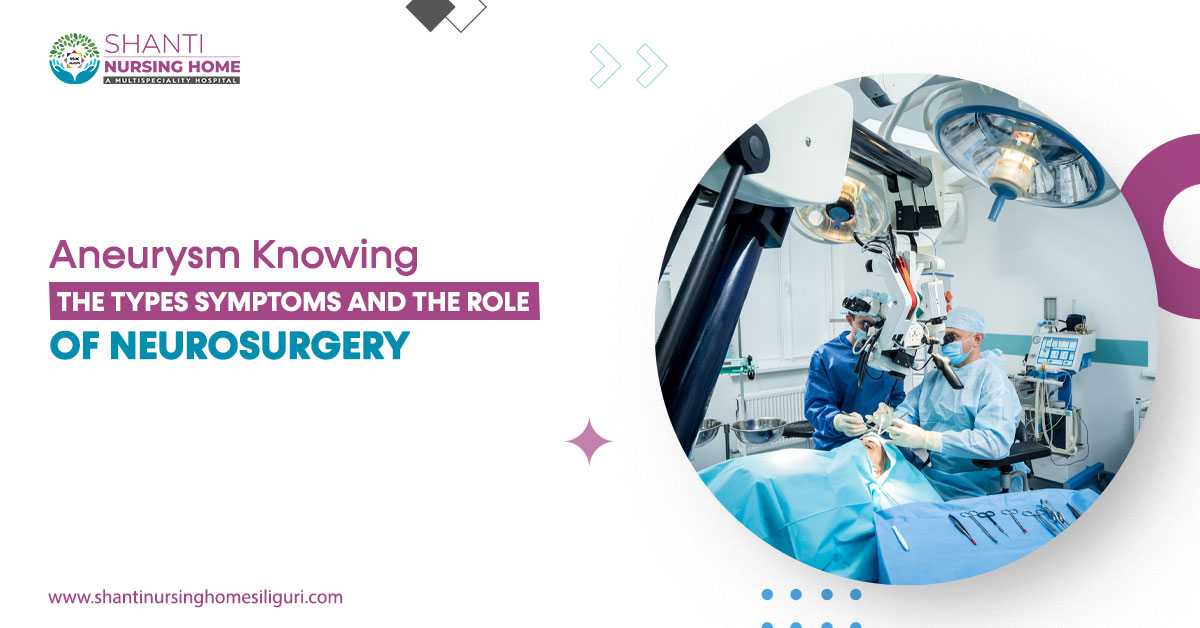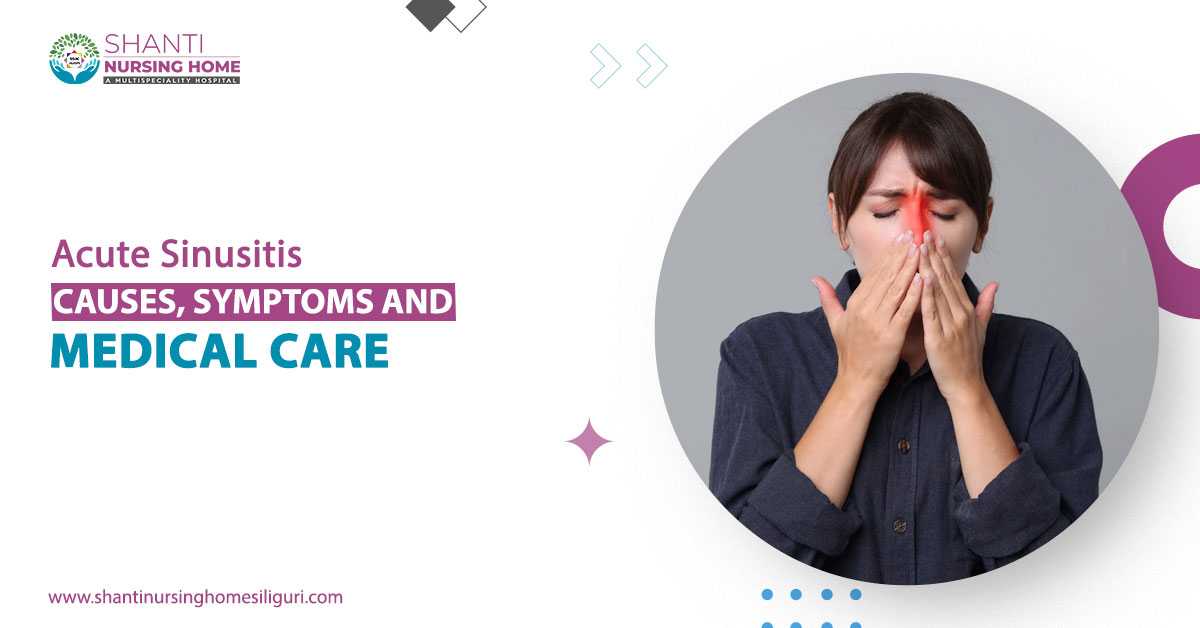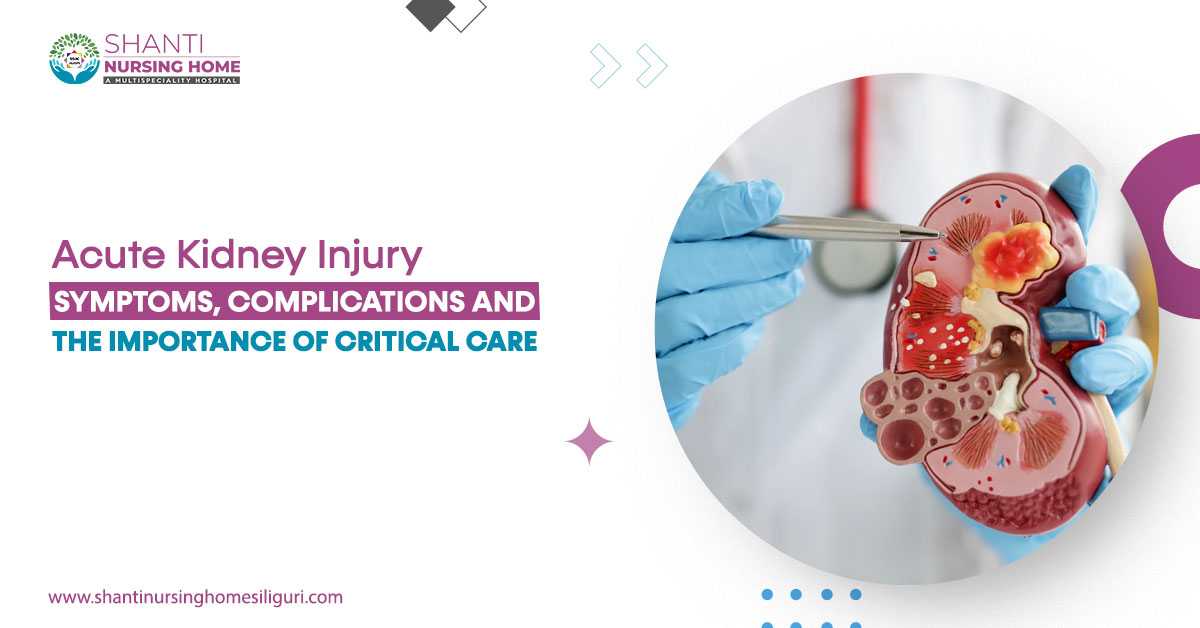INTRODUCTION
Acute Kidney Injury is a rapid decrease in kidney function that can happen within a short timeframe. This injury can result from multiple factors such as infections, dehydration along medications. On-time medical care and support are extremely crucial in order to prevent long-term damage and complications. A critical care doctor in Siliguri plays a crucial role in diagnosing and managing conditions like AKI, ensuring that patients are provided with the necessary care and treatment.
In recent years, there has been a significant rise in awareness of AKI yet a large number of people are still unaware of its signs & symptoms. If this condition is left untreated, it can result in life-threatening complications like Kidney failure. Understanding the signs and seeking help and guidance from the seasoned critical care doctor in Siliguri is crucial for a successful recovery.
Understanding Acute Kidney Injury (AKI)
Acute Kidney Injury is a condition that usually occurs when the kidneys suddenly lose their capability to filter waste products from the blood. When Kidney fails to filter out waste from the blood, toxic and harmful levels of waste may accumulate; in such cases, the chemical composition of the blood may become imbalanced. The key contributors to this condition include fluid loss, acute infections, and pharmaceutical treatments along with underlying health conditions like high blood pressure or diabetes.
Symptoms Associated with AKI
Swelling in the Legs, Ankles, or Feet:
Fluid retention associated with AKI can result in swelling of the legs, ankles, or feet. Such complication occurs when the kidneys cannot efficiently expel excess fluid from the body. Consulting with the best critical care doctors in Siliguri can help you manage this symptom and identify the underlying cause.
Reduced Urine Output:
A noticeable reduction in urine output is among the earliest indicators of Acute Kidney Injury. This can be a clear sign that the Kidneys are facing utmost challenges to filter waste from the blood efficiently. If you experience this symptom, it's essential to consult a healthcare provider to assess kidney function.
Fatigue or Weakness:
Individuals suffering from Acute Kidney Injury commonly report feeling fatigued and weak. The accumulation of waste in the blood from impaired kidney function can cause intense feelings of tiredness and exhaustion. Individuals must seek immediate medical attention if their symptoms persist or worsen.
Nausea and Vomiting:
When kidney function declines and waste builds up in the bloodstream, complications such as vomiting and nausea are often experienced. This can result in further issues like dehydration if immediate attention is not given. Consulting with a healthcare provider, such as the best critical care doctor in Siliguri, can help you manage these symptoms effectively.
Complications Associated with Acute Kidney Injury
AKI, if not managed effectively, can result in several complications, including:
- Chronic Kidney Disease (CKD):
If Acute Kidney is not treatment on time, it can cause major damage to the kidneys which can progress to Chronic Kidney Diseases. With the progression of Chronic Kidney Diseases, the kidney function declines, making it increasingly difficult for the kidneys to remove waste and control fluid levels.
- Cardiovascular Issues:
As SKI can result in fluid retention and imbalances in electrolytes, it places additional strain on the cardiovascular system. The Kidney plays a vital role in controlling blood pressure and maintaining fluid balance so if these processes are disrupted, it can lead to heart failure, irregular heart rhythms, or elevated blood pressure.
- Infections:
When Kidney function is compromised by Acute Kidney Injury, the challenges and risks of infection including UTIs and sepsis increase. When the kidney’s ability to filter waste is impaired, it creates an atmosphere where harmful bacteria can flourish and thrive. Preventing infections requires vigilant monitoring and prompt medical treatment from healthcare professionals, and consulting the best critical care doctor in Siliguri can help ensure the most effective care.
- Metabolic Disturbances:
Acute Kidney Injury often causes disruptions in metabolism such as imbalances in electrolytes such as sodium, potassium, and calcium. Such metabolic disturbances can result in severe complications like abnormal heart rhythms, muscle weakness, or even seizures in extreme cases.
Role of Critical Care in AKI Treatment
A critical care doctor in Siliguri specializes in the management of patients with severe conditions like AKI. Treatment involves several steps:
Fluid and Electrolyte Management: In the treatment and care of AKI, maintain proper fluid and electrolyte balance is extremely crucial for both restoring and sustaining kidney function. Balancing fluid intakes and correcting electrolyte imbalances such as those involving potassium or sodium helps avoid additional complications and supports proper kidney function.
Medication Management: Pharmaceuticals that can contribute to the development of AKI like certain antibiotics or painkillers should be thoroughly examined and adjusted by a health expert in order to avoid further complications.
Dialysis: In more critical cases of AKI, when kidney function drops to a life-threatening level, dialysis may be recommended by the best critical care doctor in Siliguri in order to help eliminate waste products and surplus fluids from the blood. Dialysis serves as a short-term substitute for kidney function, providing time for recovery or until a permanent solution is available.
CONCLUSION
To conclude, Acute Kidney Injury is a very critical condition that could result in permanent damage if immediate attention and care is not provided. Working closely with the critical care doctor in Siliguri is extremely crucial for timely intervention and support. Through early detection, the correct treatment and expert care, a large number of individuals can recover with no lasting kidney damages.
The role of the best critical care doctors in Siliguri cannot be overstated when it comes to diagnosing and managing AKI. Their expertise is vital in providing the necessary care to prevent complications and promote recovery.





